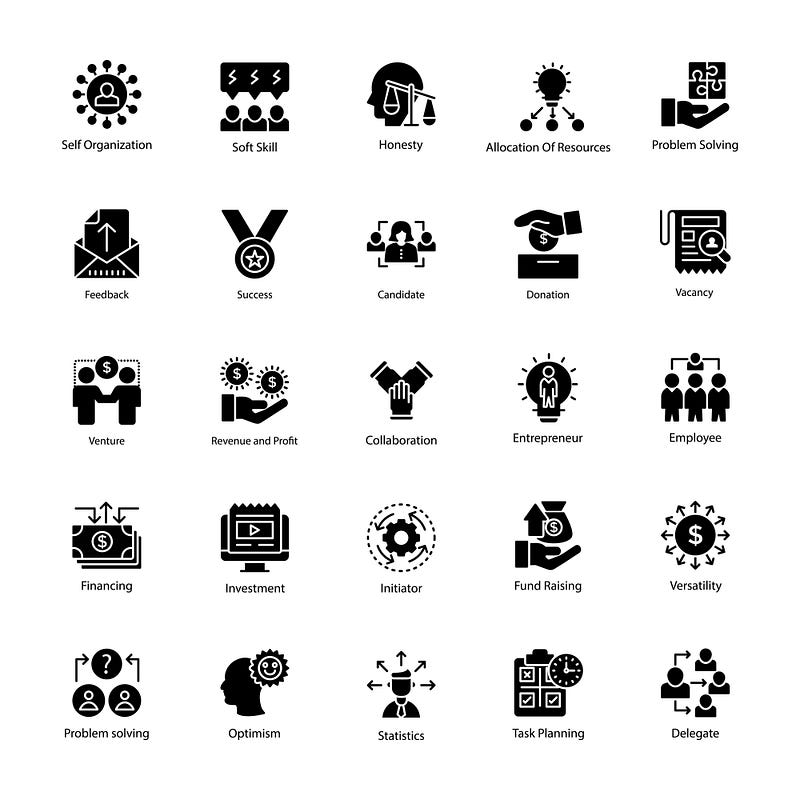In today’s complex ever-changing work, we need to make full use of the collective intelligence of the whole team, even if the whole organization to be able to solve and deliver on these needs. Collective intelligence is more than the sum of the individuals. Everyone having a voice is important, but not sufficient in itself. We need a culture of safety, learning, and collaboration. Culture in itself is this big nebulous thing, but how do we begin to move to that culture?
Gathering a whole group of multi-skilled/cross-functional people together and having them work to solve problems as a self-managed team is as simple as that…right? At scale, you could make the argument that we are used to working with other people. However, they always worked within their own groups, possibly on different projects, never having to collaborate with or challenge each other.

Modern Product Development is as much an art as it is a science. We need these multi-skilled teams to be creative — challenging and building on these ideas, hypotheses, and hunches. Many soft skills like curiosity, self-awareness, and empathy are important. For this post I will focus on these three:
- Communication
- Problem Solving
- Teamwork
Communication — to understand the person(s) you are trying to explain complex theory/solutions/ideas. Without strong communication skills, it is impossible to share ideas, challenge, explore, and evolve. This is especially important when we are moving from being told what to do to being empowered to decide what to do.
Problem Solving — does not just require analytical, creative and critical skills, but a particular mindset: those who can approach a problem with a cool and level head will often reach a solution more efficiently than those who cannot. This is a soft skill which can often rely on strong teamwork, too. Problems need not always be solved alone. The ability to know who can help you reach a solution, and how they can do it, can be a great advantage.
Teamwork — like leadership, good teamwork involves a combination of other soft skills. Working in a team towards a common goal requires the intuition and interpersonal acumen to know when to be vocal, and when to be a listener. Good team players are perceptive, as well as receptive to the needs and perspectives of others.
Why is it so hard? So-called soft skills are always the second class citizen to ‘required’ or marketable skills like developing roadmaps, building strategy, stakeholder management, Java, testing, etc. Those skills are important, but not sufficient. Yet, those are the skills that get the interviews and are hired.
Why do Soft Skills seem so hard to find?
Like learning, we need to make soft skills a first-class citizen. Maybe we should flip our thinking to consider these skills not as soft, but as critical. They need to rise to the most important skills needed, to get the focus it deserves. We need to incentivize on demonstration of critical soft skills. We all talk about great leaders having these. You are not born with them — they can be learned.
We need to hire with 3–5 years in mind. Hiring is something we rush through. I get it, with people have skills that match high-demand roles, we need to move fast. This is why we get short-sighted on the required or marketed skills. Elaborate on your hiring process to have candidates demonstrate these soft but critical skills.
We still operate in a predict and control model. Where higher roles solutionize those things that need to build and hand the work over to these cross-disciplined teams to build what they are told. We push for more self-managed, autonomous teams, because we all know it’s what we want and need. When we do this, in parallel, we need to build & train for all of the soft skills required to successfully understand problems and let curiosity and experiments build future innovations.
I mentioned culture at the start of this post. We need a culture of psychological safety if we ever hope to be able to learn and grow. It is my opinion you cannot wait for the right culture before you start. Rather, hire, develop and support the skills and behaviors needed. The culture will form around that.
I am all for agile and speed. However, we need to start investing in medium growth and development. I too often see companies that have low reporting quarters that react by slashing training and development. Times of trouble are when we need to focus, collaborate, and learn to get us out of what we are doing. It’s the investment in critical skills (formerly called soft skills) that will empower the bottom-up intelligence to weather the storm.
I would like to leave you with 3 things:
- Make soft skills the critical skills that you hire for. Do not bury it beneath the skills that are the marketable skills and experience. Quit hiring brilliant jerks. If they cannot demonstrate the skills of communication, teamwork, and curiosity, pass on them. They might help in the short term, but will be detrimental in the long term.
- Work with your teams and people in your group to co-create measures for how you can demonstrate those measures individually, as a team, and an organization. This way you can measure, develop, and incentivize these skills and traits.
- Invest funds and time purposefully to develop and grow these skills in your people. Those things that we put money and time in are those things that we are signaling are important.
Every keystroke is precious so I will end here.
Watch my video below.
Lead how you would like to be led.
Dave
Twitter: @DDame
Medium — https://medium.com/dave-dame
